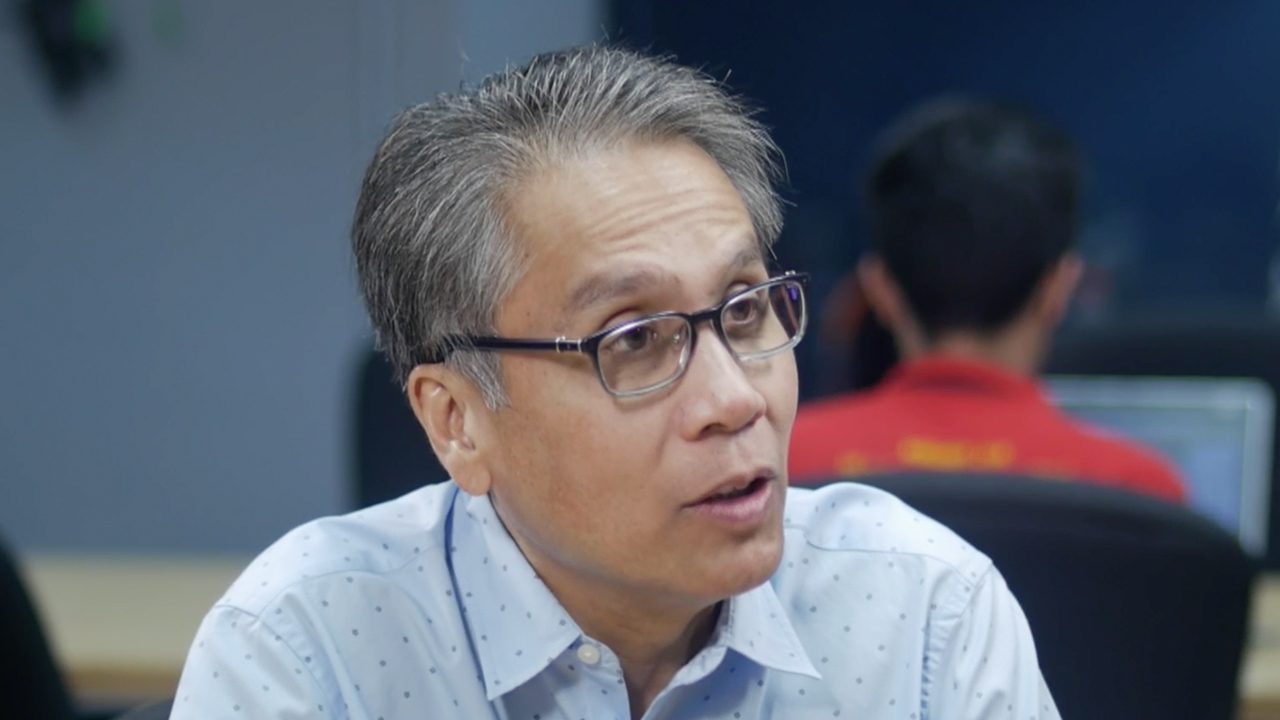SUMMARY
This is AI generated summarization, which may have errors. For context, always refer to the full article.

MANILA, Phillipines – Opposition senatorial candidate Mar Roxas said fake news on social media could not be regulated because doing so would violate Filipinos’ right to free speech.
The former senator said this on Sunday, February 24, during the second installment of “Harapan 2019: The ABS-CBN Senatorial Town Hall Debate.”
“Hindi p’wedeng i-regulate ‘yan kasi free speech ‘yan. Kung ano free speech ng tao, kasama na fake news, naging biktima tayo, talagang naging libre ‘yan,” Roxas said when it was his turn to do the fast talk segment.
(You cannot regulate that because it’s free speech. The people have the right to speek freely, including fake news, which I was a victim of.)
Under President Rodrigo Duterte, trolls have been used to go after journalists, critics of the government, and the opposition. (READ: Propaganda war: Weaponizing the internet)
Roxas was Duterte’s rival in the 2016 presidential elections, with Roxas finishing second to the then-Davao City mayor.
The Commission on Elections announced it will start monitoring social media accounts and posts by and about candidates, but clarified it would be for the purpose of checking campaign expenses and not to censor content. (READ: [OPINION]: What are the limits of Comelec’s social media monitoring?)
Press freedom issue
Meanwhile, senatorial aspirant Conrado “Ding” Generoso said the arrest of Rappler CEO Maria Ressa was a “private case” and not an issue of press freedom.
Generoso was the former spokesperson of Duterte’s consultative committee on charter change,
“Ang pinag-uusapan dito ay hindi press freedom. Ang pinag-uusapan dito ay reklamo ng libel. It’s a private case between one individual and a journalist. Tignan sa merito ng kaso,” Generoso said during the fast talk portion of the debate.
(The issue here is not press freedom. The issue is the libel complaint. It’s a private case between one individual and a journalist. Let’s look at the merits of the case.)
Generoso was referring to Wilfredo Keng, the businessman who sued Rappler for cyber libel only 5 years after the article was published, as the Duterte government stepped up its attacks against Rappler. He is a government contractor, having bagged reclamation projects, among other contracts, under Duterte.
While he is in favor of decriminalizing libel, Generoso said journalists “should be more responsible in their reporting.” He also claimed that the Duterte administration is not harassing Philippine media.
“Meron na ba tayong halimbawa na hinuli at pinarusahan dahil sa isinulat? Wala sigurong ganoon. Iba ang kondisyon ng Martial Law sa ngayon,” he added.
(Do we have an example where a journalist was arrested and penalized because of what he or she wrote? I don’t think we have that now. We have a different condition now than during Martial Law.)
Ressa said in an interview with Time magazine: “No one sets out to say, ‘I’m going to violate the Constitution’ – it’s the series of small decisions that, in the end, bends and breaks the rule of law.”
Duterte’s pattern of behavior shows this. As newly-elected president, he said corrupt journalists who get killed were asking for it. As President, he has repeatedly slammed journalists and news groups for stories critical of his administration. (READ: Philippine media under attack: Press freedom under 2 years of Duterte)
He falsely accused Rappler of foreign ownership, which then became the basis of the Securities and Exchange Commission to order the company’s closure. The case is still pending with the courts.
Duterte also threatened to cut the congressional franchise of ABS-CBN. He also repeatedly threatened the owners of the Philippine Daily Inquirer using a case pending with a local court against their other real estate business.
On February 13, Ressa was arrested for cyber libel and stayed the night at the National Bureau of Investigation after a night court refused to process her bail.
The case stemmed from a story published in May 2012 or 4 months before a cybercrime the law she allegedly violated was enacted. The NBI flip-flopped after initially saying that the complaint was past the one-year prescriptive period for libel. Duterte had denied involvement in the case.
The charges are not the only instances of harassment and intimidation against Rappler and Ressa, who are also facing at least 8 cases. Its reporters and correspondents have also been barred from covering all presidential events across the country. (TIMELINE: Malacañang’s evolving statements on Rappler ban) – Rappler.com
Add a comment
How does this make you feel?
There are no comments yet. Add your comment to start the conversation.